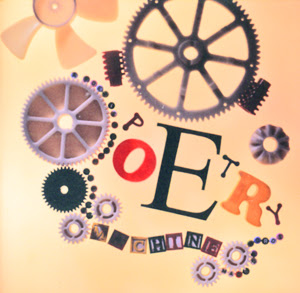Dr. Kiriti Sengupta

Kiriti Sengupta is a bilingual poet and translator in both Bengali and English. He is the author of the bestselling title, My Glass Of Wine, a novelette based on autobiographic poetry. Kiriti’s other works include: My Dazzling Bards (literary critique), The Reciting Pens (interviews of three published Bengali poets along with translations of a few of their poems), The Unheard I (literary nonfiction), Desirous Water (poems by Sumita Nandy, contributed as the translator), Poem Continuous – Reincarnated Expressions (poems by Bibhas Roy Chowdhury, contributed as the translator), and Aay Na (Bengali free verses)
Sengupta has been the joint-editor of two poetry anthologies under the titles, Scaling Heights, and Jora Sanko - The Joined Bridge. For more details visit www.kiritisengupta.com

Now Available


Introduction
As I finished writing for my first nonfiction ‘The Unheard I,’ a serious thought popped up. In fact, this had a reference to my association with an international charitable anthology, “Twist of Fate.” I was quite shocked to know that most of the English-speaking (English-reading as well) readers were not aware of the rich heritage of Bengali poetry. Poets all across the globe (except the Bengali poets of course) are not so well-versed with the happenings of Bengali literature. The only source which they can relate to is Wikipedia, which does not essentially contain the required information. The serious lack of necessary details motivated me towards projecting some important works by a few contemporary Bengali poets. Well, I am neither a poetry-critic, nor an expert fellow of poetry-research! I can’t possibly accumulate all relevant works done by the past and present generations of Bengali poets in this small-volume book. My plan is to highlight three of the experienced and published poets from Calcutta who are involved in writing poetry for years. They may not be called distinguished in the literal sense, they form a perfect extension of Bengali poetry that was once maintained and propagated by the exemplary Rabindranath Tagore!
Yes, Tagore was awarded the Nobel Prize in literature in the year 1913, as the official website (www.nobelprize.org) states, “because of his profoundly sensitive, fresh and beautiful verse, by which, with consummate skill, he has made his poetic thought, expressed in his own English words, a part of the literature of the West." Tagore was the first non-European, and the first Asian too to win the Nobel Prize in literature. Wikipedia has categorically mentioned that Tagore’s translation of Gitanjali was viewed as ‘spiritual,’ and ‘mercurial.’ The only other Indian recipient (a citizen of the United Kingdom though) of the Nobel Prize in literature was V.S. Naipaul in 2001.
Making Bengali poetry a part of the Western literature once again seems extremely difficult, considering an acute dearth of efficient translators. In my opinion most of the Bengali poets are a bit reluctant to translate their compositions into English. This is one of the significant contributing factors towards a non-inclusion of Bengali poetry in the global canvas of literature. Very few of them express interests for translating their works. My chief objective is to create some zeal within the global readers so that they may come forward to gather more of Bengali poetry.
There is a question. Literature is often a mirror image of the concerned culture. Bengali poetry, which is an integral part of Bengali literature, reflects the hidden nuances of Bengal, be it of West Bengal or of Bangladesh. Now how can we make a culture-specific creation a part of Western literature? Ages back what Tagore did successfully might bear a possible link with the then Government (British Empire) of India. Did I sound controversial here? Come on, Tagore’s works were inimitably brilliant, to say the least!
India (and Calcutta of course) has produced so many successful poets and literary workers till now! We have a good number of eminent academicians and researchers working on Bengali literature. The fact is, very few of them have tried so far to project Bengali works to the population, which is largely unknown of the present flow of Bengali poetics. Either we are engrossed with our own literary creations, or we are working on issues that are not conducive of the projection of Bengali poetry to the outer world. This is a pity indeed!
My book is comprised of three chapters, and each of them represents a Bengali poet/poetess whose works, I think, have a universal appeal and are not so culture-specific. These are creations which may generate interest among serious readers of literature. My humble attempt can never be classified as great, for I am probing the sensibilities of the readers/researchers who are better acquainted with the Western literature. I am working on translations for more than 8 years, and I found these poems can withstand any amount of literary / scientific / scriptural / philosophical / political dissections. Such are their potentials which are capable of erection of their worthy tents!
Knowing the psyche of the concerned poets is equally important as analyzing, and reviewing their poetry. When I planned for this book, I was sure that I would put up some interviews with the selected poets. I have tried to compile their words almost unedited so that the readers can reach the depth of their poetics. Bengali poetry remains an indivisible part of the global literature.
Now, why did I select these three from the present lot of poets? I must come clean here. The only poetess (Joya Mitra) I have is simply captivating as well as soul-arresting. The other (Ranadeb Dasgupta) is enchanting, earthy with a tone-down appeal. And the rest (Suddhasatya Ghosh) is wonderfully lavish, thought provoking with his mastery of words!
Dear readers, as you go through the pages you will definitely find truth in my claims. I do believe that honesty is the best instrument an author can ever possess.
Thank you.
Kiriti
05 Night Song.mp3